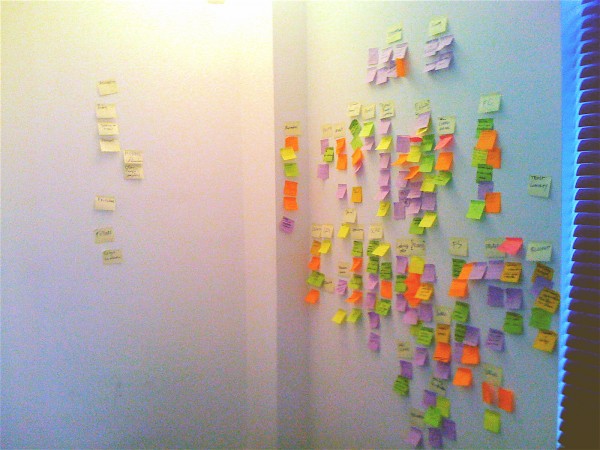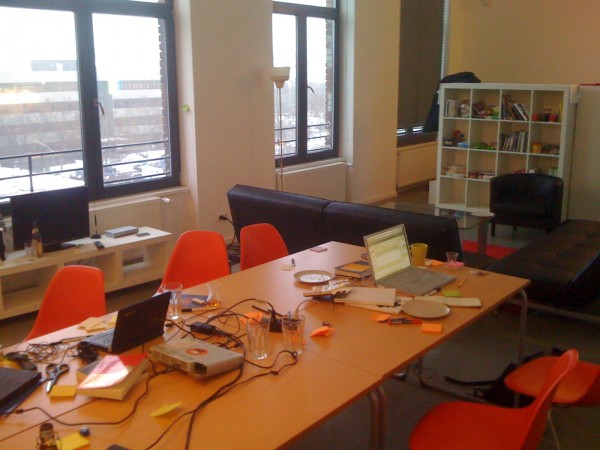
Berlin is beautiful in the snow, though we get to experience it mainly through the window. Day 1 of the “Collaborative Futures” book sprint (more about what it is in my previous post) was fascinating and intense. I feel very privileged to have met this group of talented people, all coming with strong experience and insights about collaboration, all with a pretty explicit free culture & free software bent. (I was weirded out by being the only one to nut be running Linux on my laptop)
As I suspected, this is not an easy task. After a day of intense work we came up with the (tentative) guidelines for the book. You can think of it as a table of contents but it will serve mainly as a general guideline for our writing this week. Finally, this will not be an exhaustive survey of the term collaboration (which would be a boring outcome), but rather a set of articles and insights (and possibly some predictions) about the past present and future of collaboration as informed by our experiences and interests.
Here’s the TOC for the first day:
- Assumptions
- History
- Definitions
- Process
- Models
- “Other people’s computers”
- Problems
- Futures
- Epilogue
Other clusters of themes we have brought up and that will or won’t find themselves in the book are: motivations, politics (as in national group identity), money, autonomy, power, free culture, free software, trust, licenses, law, identity, reputation, attribution, scale, leadership, goals, org culture, structures, learning from mistakes, value and bullshit.
Check out the sites and relevant posts from my fellow sprinters: Mark Linksvayer (0+1), Michael Mandiberg (0), Aleksandar Erkalovic, Marta Peirano, Alan Toner, Adam Hyde.
